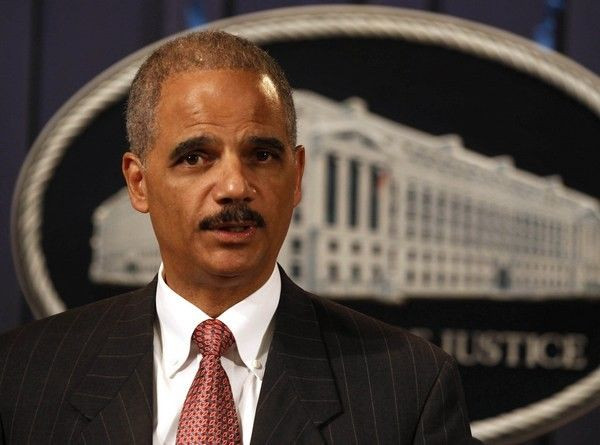US House Republicans To Sue Attorney General Holder

Having failed to get the U.S. Justice Department to press contempt charges against Attorney General Eric Holder, House Republicans are planning to file a civil contempt lawsuit against him.
The planned lawsuit marks the next chapter in the House Oversight Committee's ongoing probe of Holder's role in a botched operation, known as Fast and Furious, in which officials with the Department of Alcohol, Tobacco and Firearms allowed guns to "walk" into Mexico in an effort to monitor purchases by drug cartels. Two guns subsequently appeared at the scene of U.S. Border Patrol agent Brian Terry's death.
Led by Chairman U.S. Rep. Darrell Issa, R-Calif., the oversight committee spent months investigating whether top Obama administration officials were aware of the unraveling program. Holder was repeatedly questioned and released thousands of pages of documents but refused to disclose internal email communications. At Holder's urging, President Barack Obama invoked executive privilege to prevent the documents from being released.
The Republican-controlled House retaliated by voting to cite Holder for contempt of Congress, prompting angry denunciations and a mass walkout from Democrats who said Holder is being scapegoated in an election-year ploy. It was the first time in U.S. history a sitting attorney general has been held in contempt of Congress.
But the U.S. Justice Department said it would not press charges, reflecting a longstanding practice of not intervening in executive privilege disputes. The planned lawsuit, which a Republican source confirmed to Reuters, represents House Republicans' latest attempt to compel Holder to release more documents.
It remains unlikely that the lawsuit will hold much weight against Obama's assertion of executive privilege. The administration argued that the communications sought by Issa are the type of internal deliberations that are traditionally protected from public disclosure.
In the past, courts have sought to not intervene in such clashes. When Congress cited Environmental Protection Agency Administrator Anne Burford for contempt during the Reagan administration, the Justice Department went to court to prove it had no obligation to refer the case to a grand jury. The court threw the case out.
© Copyright IBTimes 2025. All rights reserved.





















